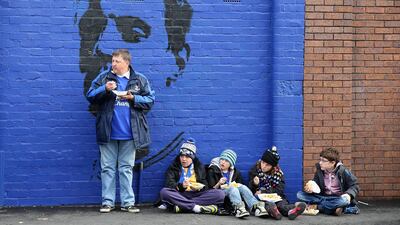Every January there is a noticeable spike online in the number of people searching for terms such as gym, fitness and diet. Triggered by the holiday season's excesses and the prospect of a fresh start, January becomes the month of attempted weight-loss.
Humorously, the January weight-loss trend has become known as janorexia. But janorexia is no joke. Eating disorders should never be taken lightly, anorexia has the highest mortality rate of any psychological disorder. It is also associated with a host of physical complications, such as bone problems (osteoporosis), liver damage, heart disease and permanent infertility, to list a few.
January being the month of many of these get-thin-quick diets, it can also be a gateway to eating disorders.
Studies going back to the 1990s support the link between restrictive dieting and eating disorders, especially among young people. For example, a study published in Psychological Medicine found that schoolgirls who were often on diets were eventually eight times more likely to be diagnosed with eating disorders than their non-dieting counterparts.
In more recent years, since 2014, January has also become veganuary, a time when we are encouraged to switch to plant-based diets for the sake of our health and our environment. Unfortunately, plant-based diets can be misused as a smokescreen by people aspiring to certain extreme body image ideals which can culminate in eating disorders. In the US, for example, around 13 per cent of the population are vegan or vegetarian.
Among anorexia patients, the rate rises to 54 per cent. There is a clear distinction though: while most vegetarians are not anorexic, most people experiencing anorexia nervosa are vegetarians, in the US at least.
Be it 'veganuary' or 'janorexia', this is the month when it is wise to raise awareness about eating disorders and the dangers of extreme weight-loss plans.
In the same way that infectious illnesses can be seasonal – the flu, for example – I am sure many cases of anorexia trace their onset back to January.
There is also the effect of the environment to consider. The Covid-19 pandemic has affected waistlines. Many children and young adults who used to walk, run, skip and play ball games at school or college, have been cooped up at home, distance learning, with limited opportunities for pre-pandemic levels of physical activity. We know from extensive research that among school-age children obesity levels increase during the school summer holiday. The pandemic exacerbated this.
It is one of those cruel playground truths that a student who has gained weight is often teased and bullied. The victimised student then often embarks on stringent and ill-informed attempts to shed the weight. All of these factors – the pandemic-related weight gain, the teasing and attempts at weight loss – might partially explain the rise in eating disorders already observed in some nations.
In the UK, for example, the number of National Health Service (NHS) eating disorders referrals among children and young people reached an all-time high during the last quarter of 2020. The rate of children being treated for such disorders in the UK has nearly doubled compared to the same quarter in 2019.
Similarly, based on NHS data for all age groups, some parts of England have seen a 20 per cent increase in hospitalisation (inpatient care) for eating disorders since the pandemic began. Hospitalisation for these conditions typically reflect cases on the life-threatening end of the spectrum.
Similar data for the US was published in July 2020 in the International Journal of Eating Disorders. This survey reported that the pandemic had worsened the symptoms of people with anorexia and those with binge-eating disorder, a problem far more common than anorexia.
Beyond weight gain, victimisation and dieting, there are other factors to be held responsible. Mervat Nasser, consultant psychiatrist and editor of the book Eating Disorders and Cultures in Transition, argues that eating disorders are a marker of transition, arising wherever there is profound social change. The pandemic has changed the way we work, the way we study, even the way we shop, socialise and celebrate. Eating disorders blossom in the gaps left by social transition. And January universally signals transition.
Named after Janus, the two-faced Roman deity associated with change, doorways and new beginnings, January denotes the shift from the old to the new. We are also transitioning to a new decade, a new school term, and "the new normal". In such a context of flux, it is reasonable to anticipate outbreaks of eating disorders.
But the good news is that if we can predict, we can prevent. Schools and colleges should help inoculate children and young people against these debilitating, chronic and, too frequently, fatal mental health problems. Hosting sessions where students can become more critical of social media content and unhealthy body image ideas is one place to begin. January is a good time to start this conversation.
Justin Thomas is a professor of psychology at Zayed University and a columnist for The National





